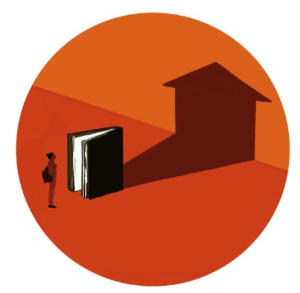Guest blog by Mir Abdullah Miri, PhD Scholar, University of Bath. Artwork created by Majid Adin
In our fast-changing world, making education inclusive for everyone is more important than ever. As an Afghan PhD scholar on the Warm Welcome Scholarship at the University of Bath, my journey from Afghanistan to the UK, through the Afghanistan Relocations Assistance Policy scheme, has filled me with views on the challenges and opportunities that education presents for people from refugee backgrounds. Researching refugee education, I have come to understand the transformative power of higher education — not just as a gateway to knowledge, but as a foundation for belonging, inclusion, and meaningful community contribution. Alarmingly, UNHCR highlights a concerning disparity: only 7% of refugees gain access to higher education, far below the global average of 40%, emphasising the significant barriers that block refugees from educational opportunities.
Recently, participating in the art-based, creative, and collaborative workshop, “Finding Home in Education”, at King’s College London, I was touched by the synergy of art and narratives in exploring the concept of home within the educational journey. The experience, based on creativity and shared understanding, was both encouraging and enlightening, providing me with new insights into how education can serve as a powerful sanctuary for those of us from displaced backgrounds. Considering these experiences, I find myself pondering several important questions aimed at those involved in influencing refugee education:
- How can educators, policymakers, community leaders, and even ordinary people work together to remove the barriers that stop refugees from accessing higher education?
- What innovative policies and practices can we implement to make education systems more inclusive and responsive to the needs of refugees?
- I strongly believe that education should be a bridge to a new promising beginning, not just a checkpoint, which stresses a shift in how we view education:
- How can we transform education systems from gatekeepers of opportunity into gateways to a new home for those who have lost theirs? I am deeply thankful to the Universities of Sanctuary, organisations such as the British Council and Bath Welcomes Refugees, and all the supporters who make higher education accessible to refugees. I believe their work does more than just transform lives; it improves our society’s fabric with strands of solidarity and support. Yet, the question remains:
- How can we strengthen these efforts and encourage more institutions and individuals to contribute to this noble cause?
In a world where education stands as the greatest equaliser, our collective responsibility to support refugees in their educational journeys has never been more urgent. Whether one is an academic, philanthropist, policymaker, or simply a believer in the power of education, the opportunity to create educational sanctuaries — places that offer more than knowledge, but a sense of belonging — is substantial. At the crossroads of traditional and innovative educational practices, we are given a unique opportunity to reconsider and reimagine our educational strategies, prompting us to ask the following questions:
- How can we ensure that refugees are not only included but empowered as vital members of our educational communities?
- In what ways can technology, collaborative learning, and policy reform contribute to a more inclusive, adaptive, and supportive educational landscape for refugees?
The journey to transform education into a home for refugees is loaded with challenges but is also full of opportunities for growth, understanding, and unity. By engaging with these questions and seeking actionable solutions, I believe we can begin to dismantle the barriers to education for refugees, paving the way for a world where everyone, regardless of their background, can thrive, contribute, and find a true sense of home. In such a world, everyone feels valued, heard, and empowered to actively contribute to their new community.
